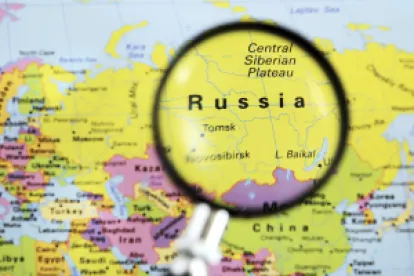On April 12, 2016, the Office of the United States Trade Representative (USTR) released its 2016 Special 301 Report (Report) reviewing the state of intellectual property rights (IPR) protection and enforcement in U.S. trading partners around the world. Following extensive research and analysis, the Report placed eleven (11) countries on the priority watch list and twenty-three (23) on the watch list Russia remains on the Priority Watch List in 2016 as a result of continued and significant challenges to IPR protection and enforcement. The Report indicates that IPR is not a priority for government officials in Russia, and that IPR enforcement continued to decline overall in 2015. In particular, the Report expresses concerns regarding copyright infringement, trademark counterfeiting, and non-transparent collecting society procedures.
Copyright infringement remains a persistent problem in Russia. Specifically, online privacy appears to be a pervasive issue. Although Russia’s antipiracy legislation continues to evolve, Russia remains home to many sites that facilitate online piracy and damage the market for legitimate content in Russia and other countries. The Report indicates that the overall number of raids, criminal charges, and convictions have declined in recent years. The Report further suggests that issuing injunctions against infringing websites does not address the root of the problem, and urges Russia to continue efforts to improve legislative and enforcement efforts that will result in fair, effective, and transparent copyright enforcement. Specifically, the Report suggests that Russia should be investigating and prosecuting the operators of such sites in order to increase efficacy of antipiracy legislation.
In addition to copyright infringement, Russia continues to struggle with a lack of trademark enforcement. This results in an abundance of counterfeit goods, such as seeds, agricultural chemicals, electronics, information technology, auto parts, consumer goods, machinery, and other products, that are manufactured, transshipped, and sold in Russia. According to the Report, the Russian Ministry of Agriculture estimated in 2015 that 10 to 20 percent of hybrid sunflower, rapeseed, and soybean seed used in Russia was counterfeit. In addition, smuggling of Chinese-origin counterfeit products through Kazakhstan and the Kyrgyz Republic into Russia remains an issue. Although Russia has developed an officially-approved methodology for testing pharmaceutical products, counterfeit pharmaceuticals also continue to be manufactured in Russia and made available through online pharmacies.
The Report also expresses concern with Russia’s implementation of the commitments it made in the WTO Working Party Report related to the protection against unauthorized disclosure of, or reliance on, undisclosed test or other data generated to obtain marketing approval for pharmaceutical products. The report suggests that although Russia has amended its Law on Circulation of Medicines, it has not issued the final regulations and detailed provisions that are necessary to ensure effective implementation of the law.
In conclusion, the Report urges Russia to develop a more comprehensive, transparent and effective legal framework and enforcement strategy to improve the state of IPR in the country. Specifically, Russia should aim to reduce IPR infringement, particularly the sale of counterfeit goods, and the piracy of copyright-protected content. The United States will continue to monitor Russia’s progress on these and other matters through appropriate channels.
In the next post, the BRIC Wall Blog will examine in detail the Report’s findings on the state of IPR in China.





 />i
/>i
